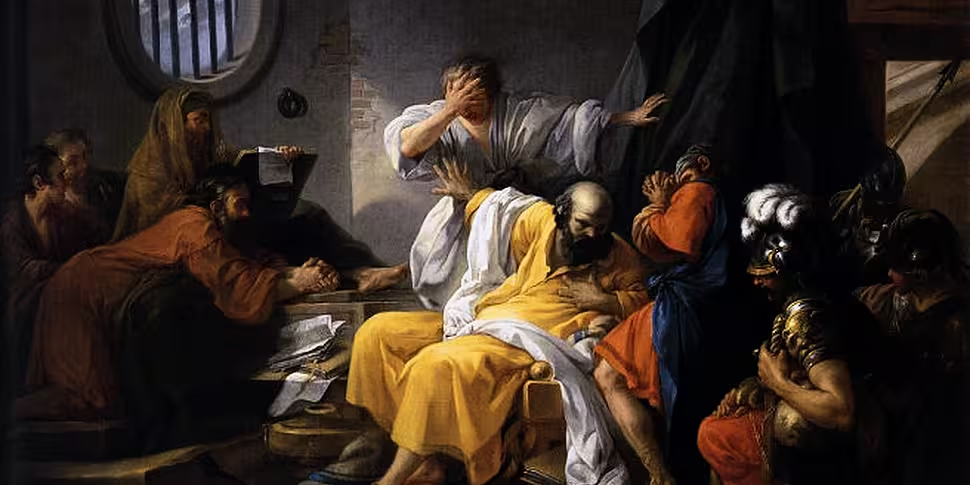This week we take a look at some accounts of thinkers and movements that have helped to change and shape history.
Though Western Philosophy might be ‘a series of footnotes to Plato’ this great thinker himself owed much to his teacher and mentor, Socrates. Acclaimed historian and broadcaster Bettany Hughes made this enigmatic lover of knowledge the focus of her latest book, ‘The Hemlock Cup’. As the subtitle, ‘Socrates, Athens and the Search for the Good Life’, indicates though there is more to this work than a simple biography.
Using Socrates life as a springboard Bettany brings the ancient metropolis of Athens to life with vivid language and accuracy. The utopian vision of men and women socialising in the shadows of marble temples and libraries is shattered as we see a barefoot Socrates wandering the noisy markets, debating in shoe shops and alleyways as prostitutes, vendors, and slaves go about their business.
Having left no written sources himself recreating Socrates’ life is no mean task. Yet Bettany does quite a good job, all while bringing the ancient world to life and exploring this great thinkers impact on history. This is a great read for anyone interested in ancient Greece, philosophy, or the love of thought and knowledge in general.
‘How to Change the World’ is the exploration of another great thinker and his legacy, though this one a little more controversial than Socrates. The second last work of the great and divisive historian, Eric Hobsbawm, this book looks at the works and thoughts of Karl Marx and how they have changed and interacted with history.
Far from a simple hagiography of the great socialist thinker this book looks at the intricacies of Marx’s writings and thoughts, as well of those of his close compatriot Engles, and how they have fared in the 130 years since his death. An incredible work Hobsbawm charts the massive technological, economic, political, and social changes that have take place throughout the late 19th, 20th, and early 21st centuries and the role Marxism has played in all of this.
Though quite impartial throughout it seems only when he is reflecting on the past 25 years of neo-liberalism and what the future might hold that Hobsbawm’s red tinge comes out. This is a great addition to the bookshelf of anyone interested in how Marxism has changed history and if there is any worth in it as a philosophy.
Our final recommendation looks at thinkers that launched an entirely different revolution. First launched in 1960 in the United States the combined oral contraceptive pill radically changed the world. Giving women control over their reproductive life it sparked massive social change as worries of unwanted pregnancies disappeared and sexual shackles fell away. No longer slaves to their uteri women were able to push for equality in society. So popular is this contraceptive that it is now simply called the pill.
In his fantastic study of this scientific marvel, cleverly named ‘The Birth of the Pill’, American journalist and author looks at four of the leading figures involved in the creation of this wonder drug and how they changed the world. Made up of the seasoned ‘birth control’ campaigner, Margaret Sanger, the brilliant scientist, Gregory Pincus, the Catholic campaigner, Dr John Rock, and the aristocratic financier, Katherine McCormick this wonder team gives fantastic fuel to Eig’s social history.
Exploring their backgrounds and personalities Eig uses each of these four players to recreate the brilliant drama around the creation of the pill. A great account of how this one change helped bring about the social and sexual revolution of the 1960s ‘The Birth of the Pill’ is a must read for anyone interested in modern social history and sexual history, and the history of feminism.









